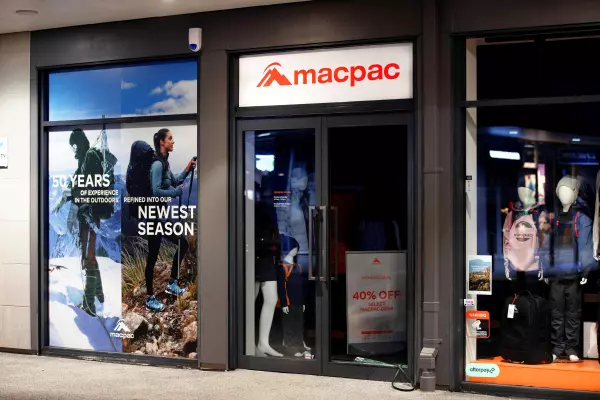Shareholders quizzing the Kathmandu Holdings directors' commitment to the company were told it was an unfair sentiment amid a difficult retail environment.
At the annual general meeting (AGM) held on Friday, a number of questions were asked about several of the Kathmandu Holdings (KMD) directors being proposed to the board.
The proposed returning director, Philip Bowman, was questioned about the amount of time spent in New Zealand. He responded it was about four or five times per annum, with varying lengths of time – from a couple of days to a couple of weeks at a time.
Another shareholder stated: “I have voted against you. I think you've got a lot of other things that you're involved in, and I don't know how you really have time to do the job that you do here.”
Global networks
Afterwards, BusinessDesk spoke to Bowman about the sentiment shared in the meeting. He said, much like chair David Kirk’s response to those in attendance, it was unfair. Bowman said he wasn’t asked specifically how he spent his time.
Much of his work is done virtually, he said, and he has global networks across several continents that can help KMD grow.
“Therefore, I think candidly, what companies need is the best group of directors on the board with the most relevant experience. Location or where they're based, I don't think is quite as important, certainly as it was, say, 20 years ago,” Bowman said.
He said he was committed to riding the highs and the lows with shareholders as he reinvested all his earnings back into KMD and currently boasts over a million shares. The rest, he said, is tithed to the Inland Revenue Department (IRD).
In his address to shareholders, Bowman said he accepted the invitation to join the KMD board because he believed the company was at a strategic crossroads.
He said Kathmandu had strong brand recognition in Australia and NZ, but it was confined to the region and was challenged by a rather costly attempt to expand into the UK market.
“The challenge in my mind was simple in concept: develop the campground, build the brand internationally and build a portfolio of brands preferably with international exposure, or broaden the customer offering and reduce the seasonality of the business."
Shareholdings
Proposed returning director Brent Scrimshaw was quizzed by a number of shareholders who asked him about his shareholdings – or lack thereof – even after six years as a board director.
In response, Scrimshaw stated that every individual has specific financial circumstances and investment strategies.
He said there were certain personal reasons why he hadn't yet already invested, but he committed that he would become a shareholder of KMD soon.
Zion Armstrong – who was appointed as board director in December last year – was also asked why he didn’t have any shareholdings.
His response was simple: he had renovation costs to prioritise, but in time, he would also buy KMD shares.
After the AGM, the shareholder sentiment was mixed. A number of shareholders who spoke to BusinessDesk wondered why the directors couldn’t even buy 100 shares. That gesture, they said, would show genuine commitment to KMD.
Share price
A shareholder also expressed their concern about the share prices diving.
Kirk said he accepted the share price had traded down but that KMD paid a competitive dividend payout ratio compared to other companies – $42.7 million in dividends last year.
“But we accept and feel the pain also about the share price,” Kirk said.
He said they were weathering difficult trading circumstances with the uncertainty in the world and suppressed consumer demand; it was a challenging time.
“People are watching their pockets a lot more, and interest rates have risen, so of course, this chews up household budgets via mortgage payments in particular."
In his address, chief executive and managing director Michael Daly said KMD wanted to continue to build global brands.
It wanted to continue growing the market share of Rip Curl in North America and Oboz in Europe, Australia and NZ.
It said KMD’s first-half results depend on the key Black Friday and Christmas retail trading periods to come.
















